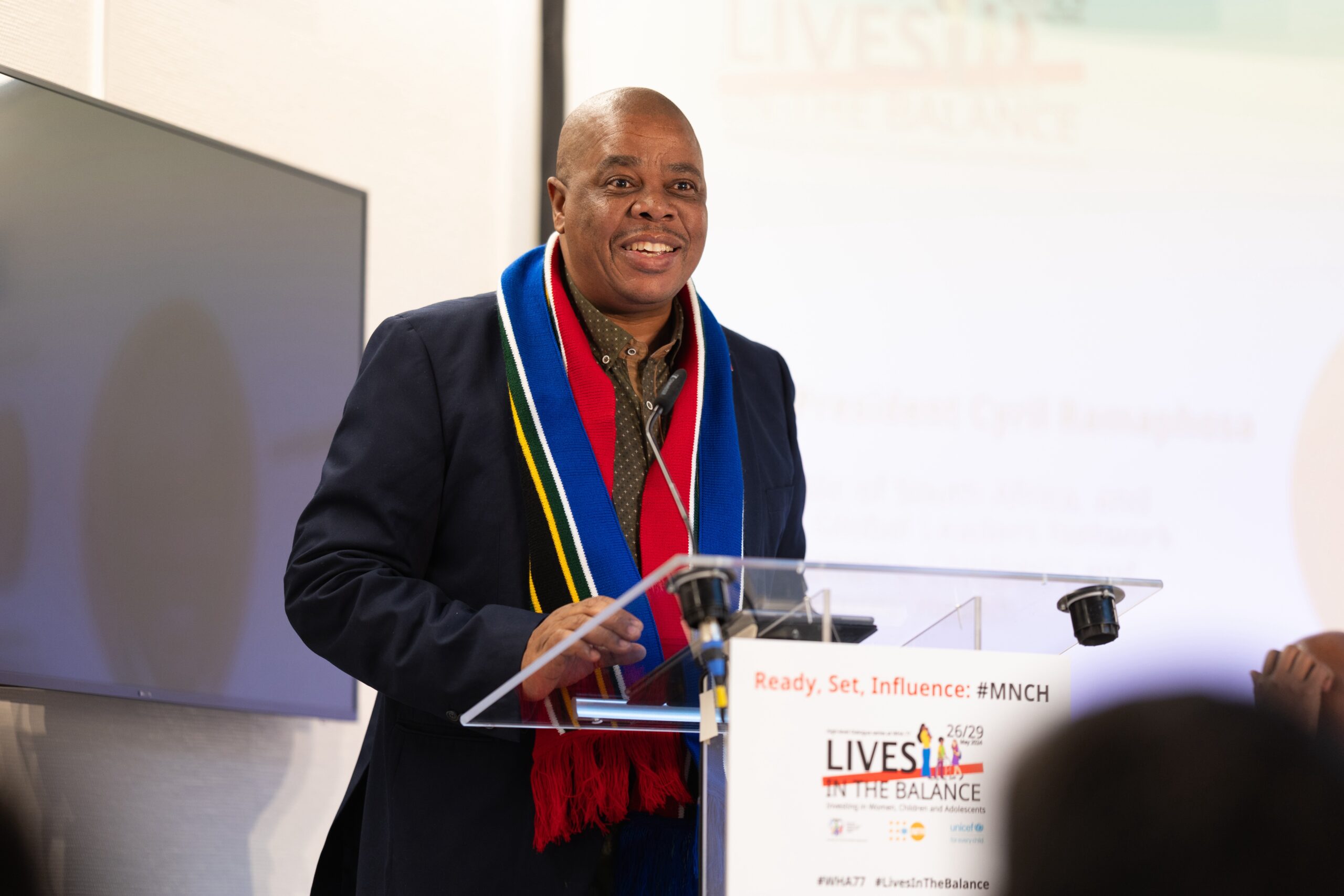“We are quite off-track in achieving the SDGs. We need to accelerate our action at almost 10 times our current rate. We proposed this resolution to bring attention and accelerate this action,” said Dr. Guled Adbdijalil Ali, Director General of the Federal Ministry of Health of Somalia and lead sponsor of the MNCH resolution. “It is so important for there to be solidarity between the countries facing these challenges.”
The Resolution is also co-sponsored by Botswana, Canada, Djibouti, Ethiopia, Egypt, Gambia, Lebanon, Nigeria, Paraguay, Sierra Leone, South Africa, Tanzania, the UK and the US, and will be addressed during the WHA proceedings in Geneva.
At the PMNCH event, Ministers of Health from Bangladesh, Malawi and Sierra Leone shared success stories in reducing maternal, newborn and child mortality in their countries, including through important innovations, such as implementing national emergency measures. “We had been through Ebola, we’d seen the response of the community and world to Ebola,” said Minister of Health Austin Demby of Sierra Leone, “So we thought, why don’t we apply this same urgency to maternal mortality?,” recalled the Hon. Minister, noting that this measure, together with other important interventions, has promoted a dramatic reduction in the national maternal mortality ratio.
Speakers at the event pledged their support for the WHA resolution, and called for unified, committed and collaborative action across high-level leadership to create lasting change for women, children and adolescents. South Africa, co-host of the event, underlined the critical importance of political leadership across development sectors. HE Cyril Ramaphosa, President of South Africa, delivered keynote remarks on the occasion of the PMNCH event through his Director General of Health, Dr Sandile Buthelezi: “The reasons we elevated this issue to the Heads of State level is our recognition of the need for a multisectoral response to the challenges of morbidity and mortality of women, children and adolescents.”

Dr Sandile Buthelezi, Director General, Department of Health, South Africa
The President’s call for greater national support and investment was echoed by Chris Elias, President of Global Development of the Bill & Melinda Gates Foundation: “Our challenge is that we’re pushing innovations into ill-prepared and under-financed health systems. We need systems that are robust and hungry for innovations,” he said. Civil society advocates participating in the events also took up the theme of national preparedness and demand. Mirriam Phiri, UNICEF Youth Advocate, Zambia, discussed the power of youth-led advocacy for health and well-being, including through direct engagement with key decision makers. Ted Chaiban, Deputy Executive Director, Humanitarian Action and Supply Operations for UNICEF, focused his remarks on the critical importance of improving health equity, and leaving no women or child behind: “There is importance of focusing on areas and investments where needs are greatest, and where the burden of maternal and child mortality are the highest — in humanitarian and fragile settings.”
Rajat Khosla, PMNCH Executive Director, closed the meeting with a passionate call for greater partnership for progress, expressing thanks to Somalia in leading the WHA resolution and galvanizing support.
Based on current trends, it is likely that 80% of countries will not achieve their national SDG maternal mortality target, 64 countries are likely to miss the neonatal mortality target (SDG 3.2.2), and 59 countries are off target in meeting the under-5 child mortality target (SDG 3.2.1). In parallel, 56 countries are not likely to meet the stillbirth target of the Every Newborn Action Plan (ENAP).
